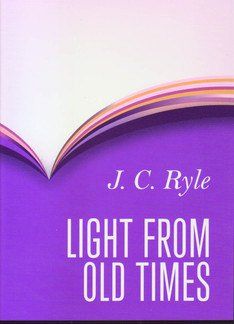Some years ago, a friend visited the parish church in Childwall, Liverpool, in order to see the grave of Bishop Ryle, Liverpool’s first bishop. Having some difficulty in finding it, he sought the vicar’s help. Not only did the vicar not know its whereabouts, he had never even heard of Ryle!
Such lamentable ignorance is what drove Ryle to write this book in the first place. In the late nineteenth century, the Church of England was happily casting itself adrift from its moorings. Anglican churchmen wanted to move away from the Protestant Reformation, its martyrs and their teaching. The prevailing mood was to forget Latimer, Ridley and Hooper and the doctrinal battles they fought.
The Reformation was viewed as an unfortunate historical episode needing to be healed, even if the separate identities of the Anglican and Roman Catholic church were to be maintained. Ryle wrote this book to redress the balance. It burns with urgency and fervour.
He wanted to call the nation in general, and established church in particular, back to their roots. The Protestant martyrs and Puritans were not a quaint and extreme group of men who ought to be left in a quiet backwater for the sole interest of theological antiquarians. No, these men were at the heart of the Church of England, and Ryle wanted to resurrect their names and deeds, calling people to learn from their example.
In his uniquely refreshing style, Ryle reminds us with lucid candour of Wycliffe, the Protestant martyrs, Archbishop Laud and his times, Baxter and Gurnall, and the bishops who stood against James II. Quoting freely from the men themselves, and often drawing heavily from Foxe’s Book of Martyrs, the accounts are powerful and evocative.
The book also presents a personal perspective. Ryle was his own man. He was obviously troubled by the execution of Charles I; neither could he make up his mind about Oliver Cromwell.
With the benefit of hindsight, it can be easy to assume the issues confronting the godly are always clear-cut. They were not and are not. Ryle’s sympathetic chapter on William Gurnall is moving. This vicar of Lavenham stayed on in 1662, when many of his brethren took a stand and were ejected from their living. One wonders whether Ryle saw echoes of himself as he portrayed the difficult dilemmas Gurnall faced.
While directing his fire at Catholicism, you do wonder whether Ryle ought to have reserved some of his ammunition for other false gospels freely accommodated within the established church. But, for all that, you love the man. The Banner of Truth are to be commended for the beautiful production of this reprint.
Paul Mackrell
Slinfold, Horsham






